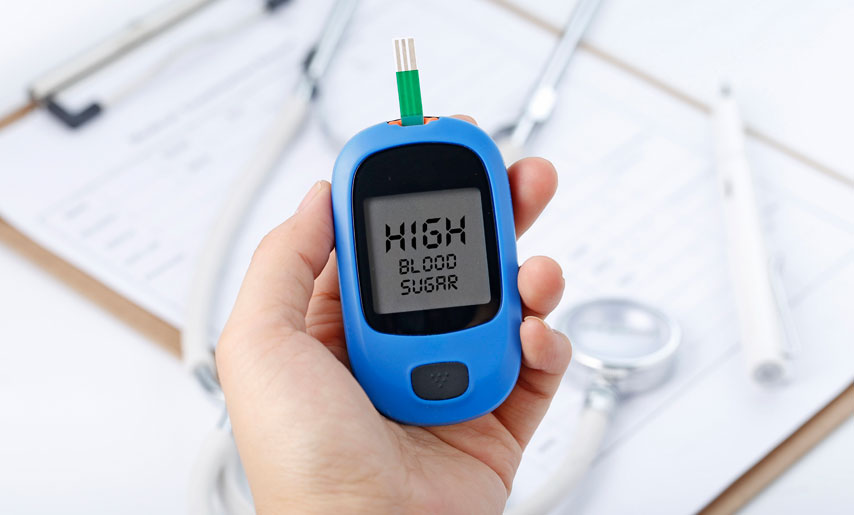
7 Diabetes Myths you shouldn’t believe

Diabetes is a household name these days. Almost all families have at least a member with diabetes in it. Changing diets and sedentary lifestyles have led to an explosion of diabetes in the country. There are 74 million diabetes patients in India, second to only China. The incidence of diabetes is increasing in both urban and rural parts of the country.

As common as it is, there are still many misconceptions about diabetes, from what causes it to how to manage it. We bust the most common myths about diabetes so that you can break the cycle of misinformation
1. Diabetes is caused due to eating sugar
Given that it is called “madhumeha” in Sanskrit, literally translated as a condition that causes sweet urination, diabetes is attached to eating sugar in most people’s minds. This is not entirely true. When we eat carbohydrates, they are broken down as glucose. Our body then produces the hormone insulin so that this glucose is available to the cells for their energy needs. In diabetics, the body doesn’t make enough insulin or can’t use the insulin well leading to excess glucose in the bloodstream. Over time, the excess glucose in the bloodstream causes issues with the kidneys, heart, vision etc. This is why diabetics are asked to avoid foods that are sweet and high in simple carbohydrates which will be converted to glucose quite easily.
2. Diabetes isn’t that serious
Many believe since many have the disease, diabetes is something that comes with age and has to be lived with. Complacency is a wrong approach to have because diabetes harms indirectly through complications. Longer that you have diabetes and the more uncontrolled the diabetes, the higher is the risk for complications. Some of the most common complications of diabetes are cardiovascular problems, nephropathy or kidney damage, neuropathy or nerve damage, retinopathy or eye damage and foot damage that can cause amputations.
In 2015, 3.46 lakh Indians died of complications related to diabetes. This is why regular follow up with the doctor, managing blood sugar and regular check ups are important.
3. Diabetics should avoid sweets
Like we said earlier, diabetes isn’t caused just by eating sugary foods or sweets, but sweets do increase blood sugar drastically, so they need to be eaten once in a while and with consideration. For example, fruits also contain a lot of simple sugar, but they also contain fiber, various antioxidants, and vitamins that are good for the body. On the other hand, cakes, loaves of bread, and biscuits do not contain fiber and hence are broken down quickly increasing blood glucose level so they have to be eaten once in a while as a treat. Also recent research shows, it is not just what you eat, the order in which you eat also impacts the glucose spike. The recommended order is vegetables, followed by protein and fat and starches and other carbohydrates in the end. This also ensures that you remain full longer.
4. Herbal medicines can cure diabetes
People are attracted to herbal remedies because they are promised they are free of side-effects and can cure disease. However most herbal medicines that promise to cure diabetes have not been pharmacologically tested, do not have quality assurance and some are even toxic in nature. Yet, many believe these “cures” rather than relying on tested and evidence-based medicine that has been proven to work for decades often leading to serious harm. Remember, before you replace your diabetes medicine with something “herbal” or natural, speak to your doctor first.
5. Those who take insulin are more serious than those on oral medicines
Those who have type 1 diabetes need to take insulin as their bodies do not produce the hormone anymore. Others with type 2 diabetes may also need insulin shots as their disease progresses and is not controlled by oral diabetes medicines alone. Not taking insulin does not mean your diabetes is milder either, your doctor may choose to manage diabetes with whatever treatment option is the most suitable for you.
6. If your parents don’t have diabetes, you will not have it
While having diabetes in your family increases your risk for it, not all diabetics have a family history. Other risk factors for diabetes are: obesity, age, prediabetes, polycystic ovarian syndrome, gestational diabetes, and race (Indians have a higher likelihood of diabetes than Caucasians).
7. Only those who are fat are prone to diabetes
While excess weight gain and obesity do increase the risk for type 2 diabetes, it is not the only risk factor for diabetes. In India, diabetes especially happens at a much younger age and in people with lower body mass index. In diabetes, as with other metabolic diseases, abdominal fat is a more important marker than just your weight. So going for an annual health check which includes a blood glucose test is a good idea in your 30s.
Also, there is a condition called prediabetes where your blood sugar levels are higher than normal but not high enough to be diagnosed as Type 2 diabetes. This condition is a precursor to diabetes. However, you can still make lifestyle and dietary changes to prevent diabetes at this stage.
Diabetes may not be curable, but it is manageable with regular health checks, the right kind of medication, a diet plan, exercise, and a change in lifestyle. At HCL Healthcare, we offer a complete care consortium to HCL employees and their dependents, through our health and wellness facilities right on your campus as well as in the comfort of your home.
“Diabetes is a great example whereby,
giving the patient the tools,
you can manage yourself very well.”
― Clayton M. Christensen.





